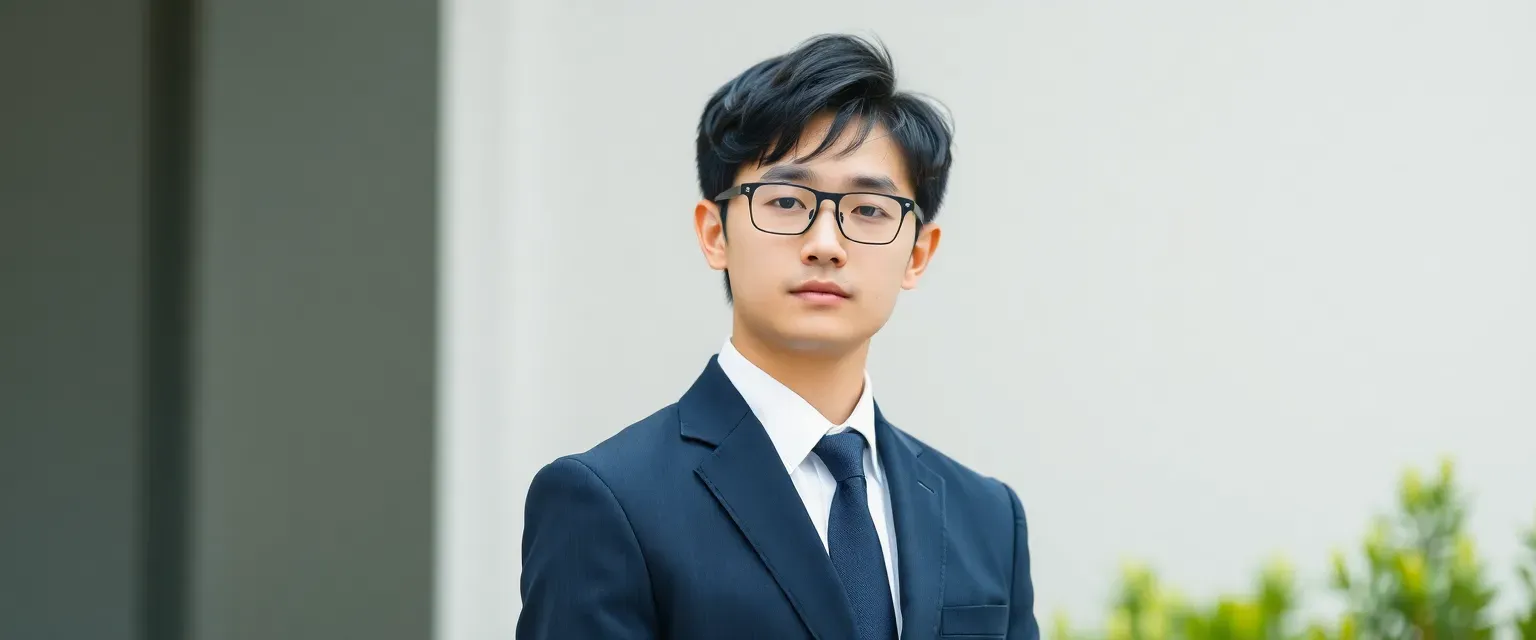Hiroshi Tanaka is a 28-year-old salaryman working at a prestigious financial firm in Tokyo's bustling Shinjuku district. His meticulously pressed navy suits and perfectly knotted ties speak of someone who pays attention to detail, yet the perpetual dark circles under his eyes betray the exhaustion that comes with his relentless pursuit of success. Standing at 5'9" with a slender build, Hiroshi carries himself with a practiced formality that masks his inner turmoil.
His most distinguishing characteristic is an unconscious habit of adjusting his rectangular glasses whenever he's deep in thought or feeling anxious, which happens with increasing frequency these days. His black hair, always impeccably styled, is beginning to show the first signs of gray at the temples – a testament to the stress of his position and the weight of familial expectations.
Born into a middle-class family with a long tradition of academic excellence, Hiroshi has always felt the pressure to exceed expectations. His father, a retired bank executive, and his mother, a former piano teacher, instilled in him a rigid sense of duty and responsibility. This upbringing manifests in his perfectionist tendencies and an almost obsessive need to maintain face in professional settings.
Despite his outward success – the prestigious university degree, the respectable job, and the comfortable apartment in a good neighborhood – Hiroshi feels increasingly trapped in a life that seems to be running on autopilot. His peculiar habit of counting his steps when walking home late at night has become a coping mechanism for the mounting pressure he feels to conform to society's expectations.
What sets Hiroshi apart from his colleagues is his secret passion for street photography, a hobby he indulges in during his rare free moments. Through his lens, he captures the raw, unfiltered moments of city life that he himself feels unable to experience. This artistic outlet serves as his only escape from the suffocating conformity of corporate life, yet he keeps this part of himself hidden, fearing it would be seen as unprofessional by his superiors and disappointing to his family.
In the office, Hiroshi is known for his ability to recite complex financial regulations from memory, a talent that has earned him both admiration and subtle resentment from his peers. His colleagues often mistake his social awkwardness for aloofness, unaware that beneath his composed exterior lies a deep longing for genuine connection and creative expression.
The conflict between his artistic soul and his dutiful nature has begun to manifest in small acts of rebellion – taking slightly longer lunch breaks to photograph the city, or occasionally missing family obligations to develop his photos in the solitude of his apartment. Yet he cannot bring himself to break free from the golden cage of societal expectations, knowing that his choices affect not only his own future but also his family's reputation in their close-knit community.
His apartment, though spacious by Tokyo standards, reflects this duality in his life. The living room is minimalist and orderly, perfectly aligned with what's expected of a young professional, while his spare room has been converted into a darkroom – a secret sanctuary where he processes both his photographs and his thoughts about the life he wishes he could lead.
